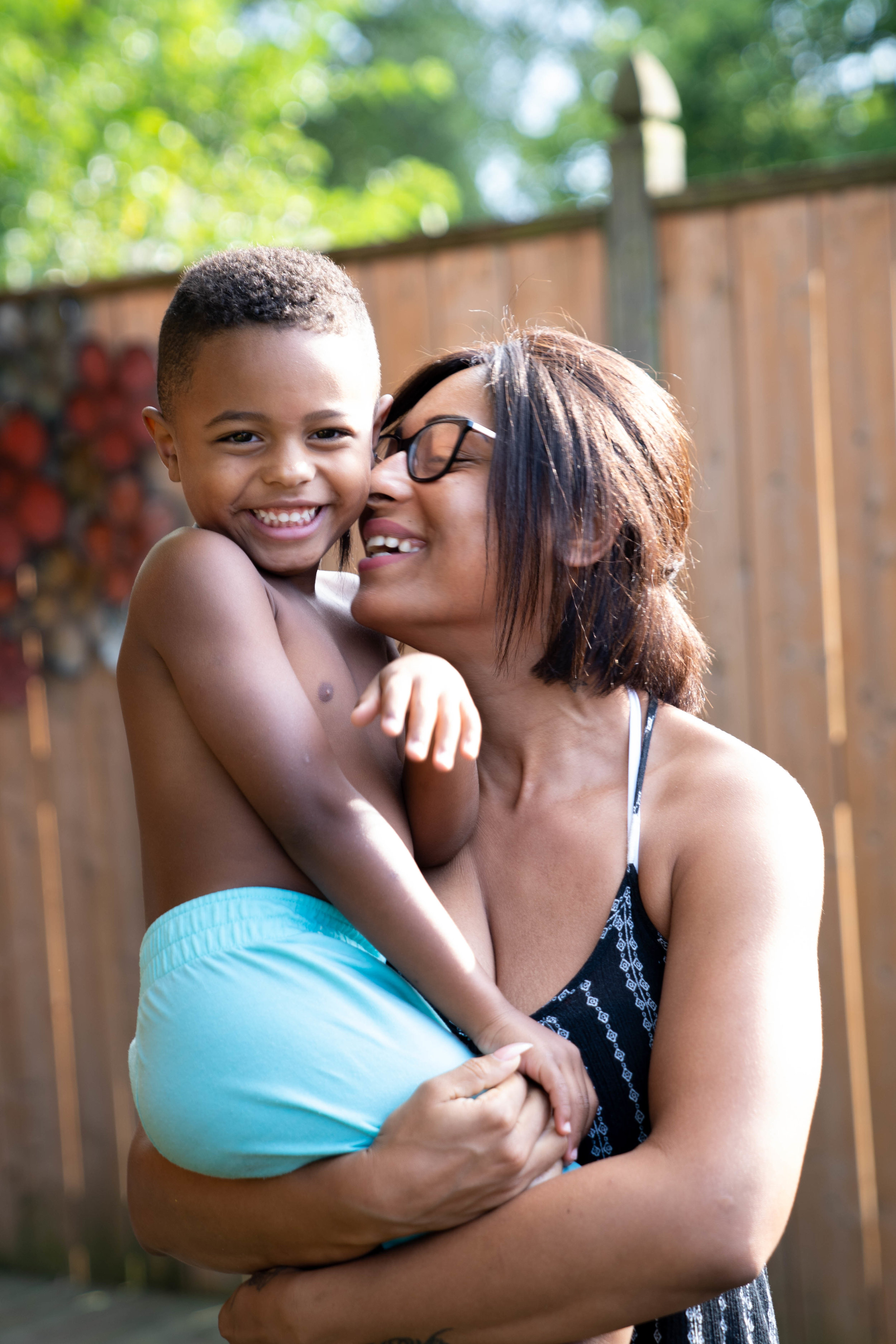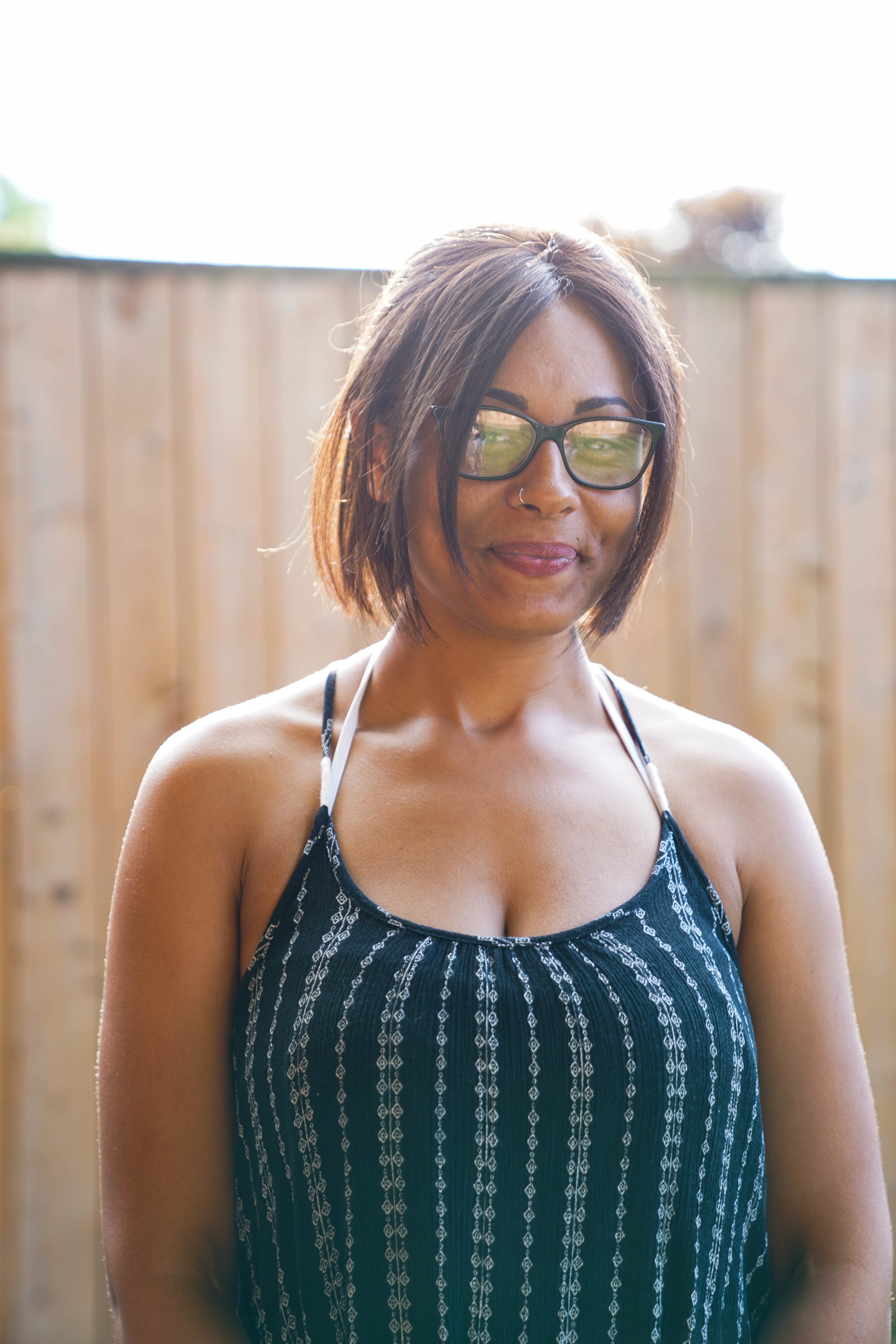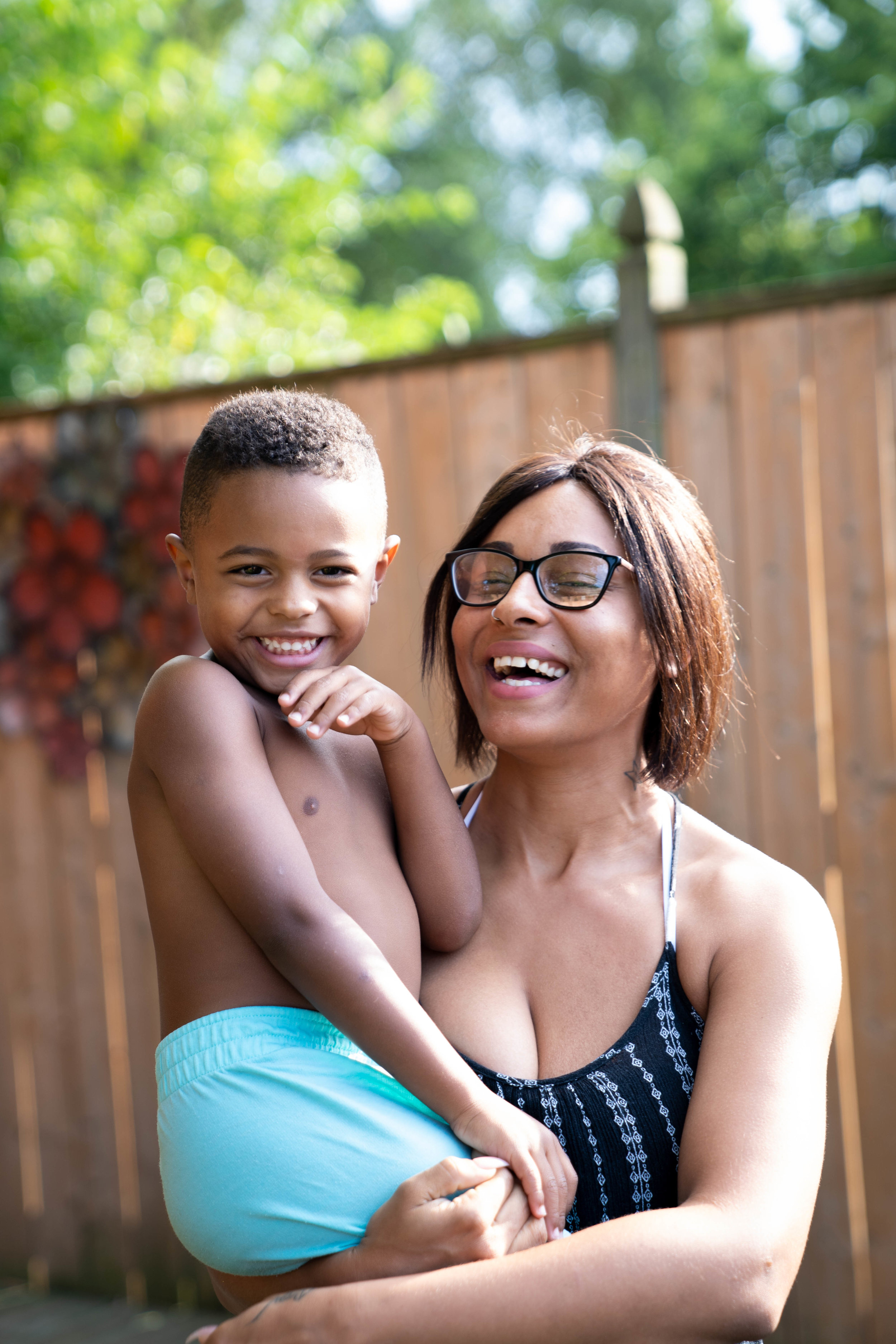
“Once that innocence is taken from you, I’m sorry, I’m gonna start crying, you can’t get that back.”
Ashley White became a human trafficking victim at 13 years old.
Now at 31, she shares her story for the first time publicly.
Ashley White’s grade eight school photo. She was 13 years old. This photo was used in her missing posters. (Photo courtesy of Ashley White)
When White was 11 years old, her mother sent her to live with her grandmother in the south end of London, Ont.. “She had a new boyfriend that didn't like me,” she says.
Two years later, at her new school in London, White was befriended by a girl in her class. During a typical walk home from the school, the girls were approached by a man in a car.
“Now that I'm older, I'm kind of learning exactly what happened and stuff, but I'm pretty sure that she knew him and it was kind of planned,” she says.
Women luring other women into trafficking is not uncommon, says Wendy Goldsmith, an advocate counsellor at the London Abused Women’s Centre. Often times when women have been “in the game” for a while, one way for them to get out or to lessen their personal expectations is to recruit other girls. “So the term they use is ‘bottom bitch’ and that's the woman who, because she's recruiting, gets a break,” she says.
The man invited White and her friend to a party at his house. White says that’s when her friend turned to her and said: “let's go.”
“I'm like, ‘okay,’ but on the way there in the backseat, she kept saying, ‘if anybody asks say you’re 16,’” says White.
She would later find out that her friend and this man were a couple.

“I know I said no at least the first five times. And then I just kind of gave up.”
White recalls driving around for a long time before arriving at the man's house. “I really didn't know that we were still in London,” she says. When they arrived, the three of them went inside and were greeted by a group of the man’s friends.
White says the group began drinking alcohol. “I didn't really drink much because I was really young,” she says. “And then I didn't feel good, so (the man) told me I could go lay down in the room if I wanted.”
This was the first day White became trafficked.
One after another, men came into the room where she was sleeping and raped her.
“I know I said no at least the first five times,” she says. “And then I kind of just gave up and let them do whatever.”
White didn’t leave that house for a whole month.
Weeks went by before White was taken to a hotel. She says she was dropped off with the other girl, but it was never explained why she was going there, or what was going to happen.
“Then some big, gross old dude came and I was so freaked out,” she says. “I went into the bathroom, sat in the shower, closed the curtain and I just cried.”
When her trafficker came back to the hotel to get the money, he realized White didn’t participate.
That’s when he began beating her friend.
“I was scared that something was going to happen to me, but now I know that that was done on purpose,” she says. “It was a grooming type thing to kind of show me this is what happens if things don't go the way that they should go.”
The couple would continue to traffic White. She says the girl who was once her friend, “literally held me down while other men could do what they wanted with me.”
According to Kim Ashby, a sociology professor at Western University, women can still act as recruiters and enforcers in human trafficking. She says she’s heard many stories of high-school girls in London being befriended by other girls with the intent to traffic them.
For White, living at the apartment of both her trafficker and her former friend made the thought of escape even more difficult.
One night, White’s trafficker woke her from the futon she was sleeping on and raped her. When the other girl saw, White says she got angry and left the apartment.
“So I was there by myself for a while, but that's what makes me wonder too, why I didn't leave because it was so easy for her to leave,” she says. “So that's hard on me.”
White’s family didn’t know what to think of her disappearance. Her mother sought out involvement from the police but did not receive any help. “I guess (the police) took it as I just ran away,” she says.
But her mother kept looking for answers. She talked to people at bars and high schools. She hung missing posters around the city and searched for White on her own.
Eventually, White’s mother came in contact with the girl who first lured White into sex trafficking. “She looked at my mom’s face and told her she didn’t know where I was.”
When White’s trafficker saw the missing posters, he decided he had to get rid of her.
“I thought maybe they were going to take me somewhere and kill me or something,” she says. “And then we drove downtown and he stopped and he said, ‘get out of my car.’”
But for White, transitioning back to her normal life proved difficult.
The girl had gone back to school and started spreading rumours about where White was and what she had been doing. “I wasn't able to have any type of friends or keep any of the friendships that I had made there whatsoever because of all of this judgment without anybody really knowing the situation and what she had put me through,” she said.
As the bullying and isolation at school escalated, White left home once again.
“I would say from about 14 years old I’ve pretty much been on my own.”
White would spend her teenage years sleeping on couches and working at massage parlours.
She says that men would come in, pick the girl they wanted and then pay for their time with them. They would offer hot tub sessions, shower shows, massages and “happy endings”.
“We've got way too many massage parlours (in London). I was working in a massage parlour at 15 years old, and I didn't want to be there,” she says. “There wasn't any kind of action taken to really finding out whether I was of age or not.”
When White was 18 years old, she got into sex work.
“Once I turned old enough, I kind of felt like I was doing it because I wanted to do it and because I felt like I had control over my own body,” she says. “But in reality, the men that you're seeing and that are customers are now the ones basically taking. It doesn't matter what way you look at it, you're being taken advantage of and you're being used and it does a lot to your mental health.”
This went on until she was 23.
“It doesn’t matter what way you look at it, you’re being taken advantage of and you’re being used and it does a lot to your mental health.”

Now at 31, White is married and has a four-year-old son. She’s closer with her mother than ever before.
White is starting to share her story and volunteer like Pugh-Roberts.
“I myself am going to start publicly speaking and hopefully, I would like to get it to a point where I can have at least a hundred girls come of all ages,” she says.
White wants to remind the public that there's a lot more to trafficking than just sex, and that it affects you mentally for a long time. “Once you see certain things, you can't unsee them and it just affects the way you see the world in general,” she says. “So whatever we can do to make any kind of difference is really important.”
Pugh-Roberts says her goal is for White to become a leader and help women going through similar experiences. “Ashley is an inspiration and is proof that there is not only life after but that you can flourish,” she says.
Today, White attends therapy every week. She’s still in the recovery process and making sense of what she experienced as a child.
“I actually try to learn from every negative thing that happened,” she says. “It does affect the way you make the choices that you make and the things that you do and where your mind is at.”
“If you’re not strong, it can make you take your life. So whatever we can do to make any kind of difference is really important.”

It’s August, and White sits in her backyard under the beaming summer sun with her son, mother and aunt.
There’s a cool breeze. Music plays. Faint barbecue smoke fills the air.
In a moment, surrounded by loved ones and living a typical summer day, Ashley can forget her past.
“I don’t think life ever gets normal after.”
This summer, White completed an online training initiative to address human trafficking. She’s taken steps to research more about the legalities of human trafficking and the ways she can help victims in need of food, shelter and therapy.
White continues to attend group therapy and explained its connected her to people with similar experiences and triggers.
“It’s like a sisterhood. You just have a mutual understanding of what could be, what has been and hopefully where you want to be in the future,” said White.
White explains how talking about her experience helps in her recovery.
Forming these connections has led to the group of women getting together for paint parties, pool days and sleep overs.
All of them initiated by White.
“I considered myself more of a loner before I started going to groups and stuff and now I’ve got a pretty good social life,” she said
White talks about the bond victims have.
“The more I talk about it, the easier it is to talk about. From therapy, and group sessions the more you let it out the easier it is and the less emotional you are about it.”
White has booked speaking sessions at the Walk for Life and Salvation Army for late October. She explained that she hopes she can use these opportunities to connect with a younger audience and teach girls they're not alone.
“It would make me feel like I didn't go through all of that for nothing,” she said.
White discusses her upcoming speaking engagements.
One thing she will discuss is how women can look for red flags to human trafficking and how much influence your peers can have on you.
“I was really young and it affected my life majorly still to this day, so it's really important to me to even just help one person get out of a situation,” said White.
White said she finds the more she speaks about her past the less dark days she has.
“Things can get better regardless of what your situation is and where you’re at. You don't have to think about where you want to be in the end, you just have to go day by day.”
White explains what keeps her from having dark days.
“I find that the more that I speak, I definitely have less dark days.”









